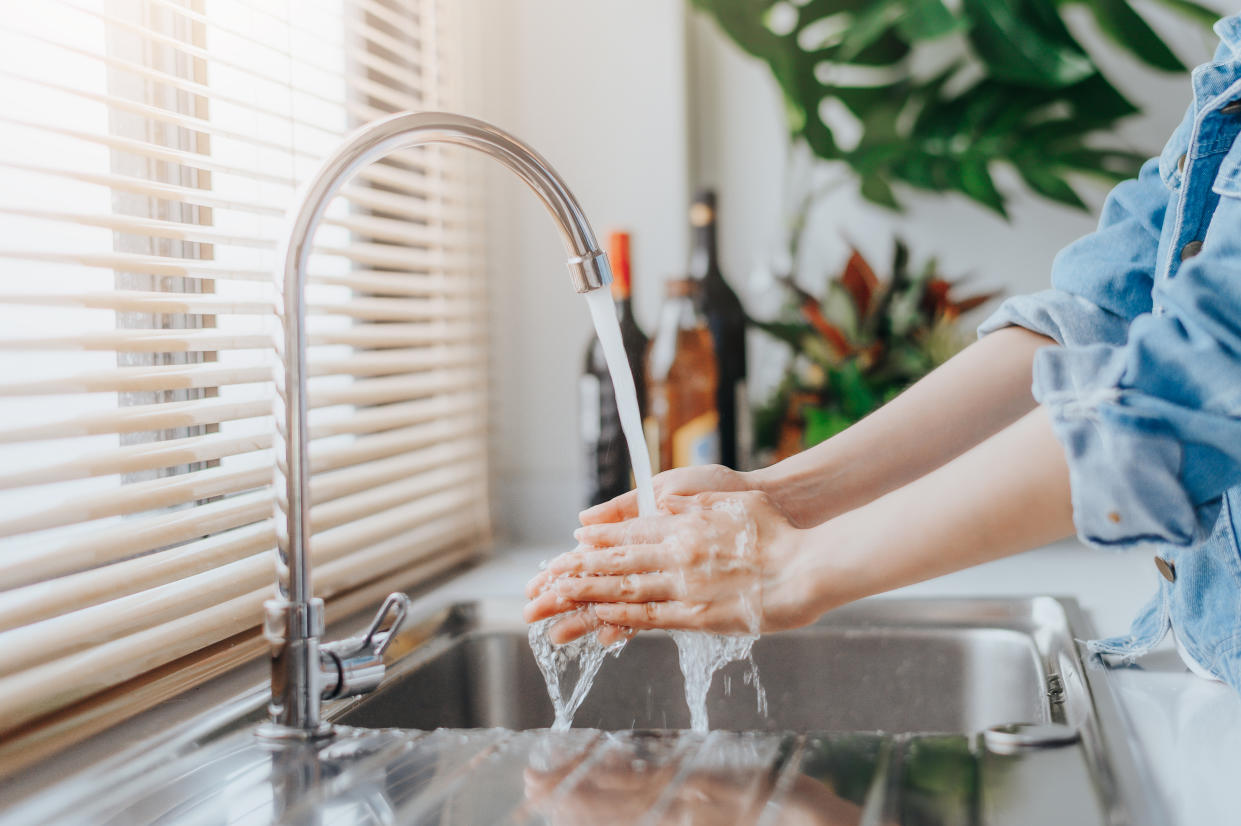Why drying your hands is the most important step to ward off the coronavirus

Washing hands alone may not protect you from the coronavirus, with the drying process reportedly also being critical to staying infection-free.
With no ‘set’ treatment, prevention is all the more important, with officials urging the public to wash their hands regularly.
Soap and water should be the go-to, over sanitiser, but experts stress cleaning hands thoroughly will only go so far if you’re not drying them properly.
Why drying your hands is important to ward off the coronavirus Covid-19
Scientists from Swansea University recently wrote for The Conversation that hand drying not only removes moisture from the hands but it also involves friction, which further reduces the microbial load and the environmental transfer of microorganisms.
Speaking of cold and flu viruses, Dr Lisa Ackerley also previously told Yahoo UK drying hands is “one extra process of preventing transmission”.
“Wet hands can transfer viruses more effectively than dry hands,” she added.
Back in 2018, the Swansea scientists looked at the “significance” of hand drying.
After analysing 21 research papers, they concluded “the efficacy of hand drying is a critical factor in the prevention of the transfer of microorganisms to the environment and from person-to-person following hand washing”.
The results were mainly based on bacteria, admittedly a different pathogen from the coronavirus, but the scientists insist the findings are “still relevant” amid the Covid-19 or coronavirus outbreak.

Disposable hand towels are the most hygienic option to dry hands, with dryers potentially dispersing the virus into the air.
The main method of transmission that has been proven is face-to-face via infected droplets that have been coughed or sneezed out. However, swabs of toilet bowels and sinks have also come back positive.
This suggests Covid-19 can spread via faeces and urine, as well as that it can survive on enamel or other hard surfaces. Whether it can live on fabrics, like the towels we reuse in bathrooms, is unclear.
Cold and flu viruses are said to survive for up to 48 hours on hard surfaces and up to eight hours on cloth.
What is the best way to wash your hands?
When you go to wash your hands, experts advise you first wet them under running water.
While it does not specify the ideal temperature, New York's Division of Military and Naval Affairs states it should be “as hot as you can comfortably stand” - typically at least 38°C (100°F).
Next, apply enough soap to cover both hands.
Rub your hands together to create suds.
Use one hand to rub the back of the other, cleaning between the fingers as you go. Repeat with the other hand.
Rub your palms together, as well as the back of your fingers against your palms.
It is important not to forget your thumbs, which should be rubbed using the opposite hand.
The tips of the fingers should also be rubbed against the palm of the other hand.
The whole process should last around 20 seconds - the time it takes to sing Happy Birthday twice.
Finally, rinse your hands under running water, before drying them with a disposable towel.
Use the same towel to turn the tap off, which should immediately be thrown away.
When out and about, hand sanitisers should be effective providing they are made up of at least 60 per cent alcohol.
Got a story tip or just want to get in touch? Email us at lifestyle.tips@verizonmedia.com.

 Yahoo Lifestyle
Yahoo Lifestyle 


